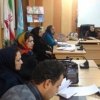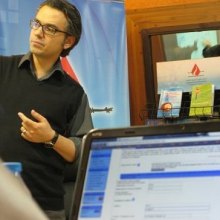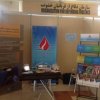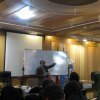
Report of the Workshop on “Practical Guidelines for Acquiring Consultative Status from...
Report of the Workshop on “Practical Guidelines...
 As one of the arms the UN in information dissemination, awareness raising, education development, promotion of UN objectives and culture, joint implementing projects and participation in intergovernmental processes, NGOs have always played a fundamental role in. For this reason article 71 of the UN Charter which resulted in the establishment of the Economic and Social Council of the UN states: "The Economic and Social Council may make suitable arrangements for consultation with non-governmental organizations which are concerned with matters within its competence. Such arrangements may be made with international organizations and, where appropriate, with national organizations after consultation with the Member of the United Nations concerned." This article in fact is an opening of a space for consultation with NGOs. In fact the UN is trying to strengthen cooperation with NGOs in all of its systems and fields of activities.
As one of the arms the UN in information dissemination, awareness raising, education development, promotion of UN objectives and culture, joint implementing projects and participation in intergovernmental processes, NGOs have always played a fundamental role in. For this reason article 71 of the UN Charter which resulted in the establishment of the Economic and Social Council of the UN states: "The Economic and Social Council may make suitable arrangements for consultation with non-governmental organizations which are concerned with matters within its competence. Such arrangements may be made with international organizations and, where appropriate, with national organizations after consultation with the Member of the United Nations concerned." This article in fact is an opening of a space for consultation with NGOs. In fact the UN is trying to strengthen cooperation with NGOs in all of its systems and fields of activities.
The necessity for the strengthening of relations between NGOs and t UN has been stated .
in numerous document, particularly the Millennium Delaration, and also the final document of the 2005 World Leaders Summit.
From its founding to-date, ECOSOC has been the only entrance to the UN system for NGOs, and it could be said that it is the main body of the UN with an official framework for the participation of NGOs. Following transformation of the UN Commission on Human Rights to the Human Rights Council and as a result the creation of the UPR mechanism as one of the main human rights mechanisms and the huge role that this mechanism created for NGOs in support of the promotion and protection of human rights, the necessity to recognise the need for NGOs to be within the UN mechanism was felt more than before, one of which was the acquiring of consultative status from ECOSOC.
The necessity for teaching how to acquire consultative status for Iranian NGOs becomes apparent when we look at the statistics of Iranian NGOs that have consultative status. From a total number of 3400 organizations that to-date have acquired consultative status, only 36 are from Iran; and this issue reduces the influence of Iranian NGOs in the monitoring and supportive role of the UN.
For this reason, towards the objectives of the UN and ECOSOC regarding increasing participation and consultation and effectiveness of NGOs in international conferences, the ODVV began holding an education course on "Practical Guidelines for Acquiring Consultative Status from ECOSOC". This course which takes place over a one month period is totally practical and dependent on the outcome is currently under way. The participating NGOs in this course learn all the registration, creation of a profile, filing request forms and preparation of documents needed for submission stages throughout the course, and work online at the location where the course is held. Due to the ODVV's stress on the effectiveness of the course and the necessity for a limit to the number of participants to reach the objectives considered, only 10 NGOs were accepted in the course.
The course was held in three stages of on location and off location:
First on location:
Initially, in a four hour workshop that was held on 18 December 2014, the participants were introduced to the concept of consultative status and necessities and benefits of its acquiring and its method and preservation. Then they learned how to create their NGO profile in the ECOSOC website. This was followed by how to fill application form for consultative status. Also the Farsi translation of the application form in software form was given to the participants, so that in two weeks they could prepare the required documents and answer the questions in the form in a professional manner.
Off location stage:
In this stage, by using what they had learned, the participants prepared the necessary documents and translated to one of the official languages of the UN, and then filled in the application forms for consultative status and prepared for submission. In this period, the ODVV and NGOs experts are ready to answer any questions and give guidelines. The participants will have 2 weeks to get through all the process until the final preparation of the documents and application forms.
Second on location stage:
In this stage the NGOs along with their prepared documents and application forms, get together in a 3 hour workshop and submit them. In this stage the registration of NGOs requests is concluded.
 Reload
Reload

